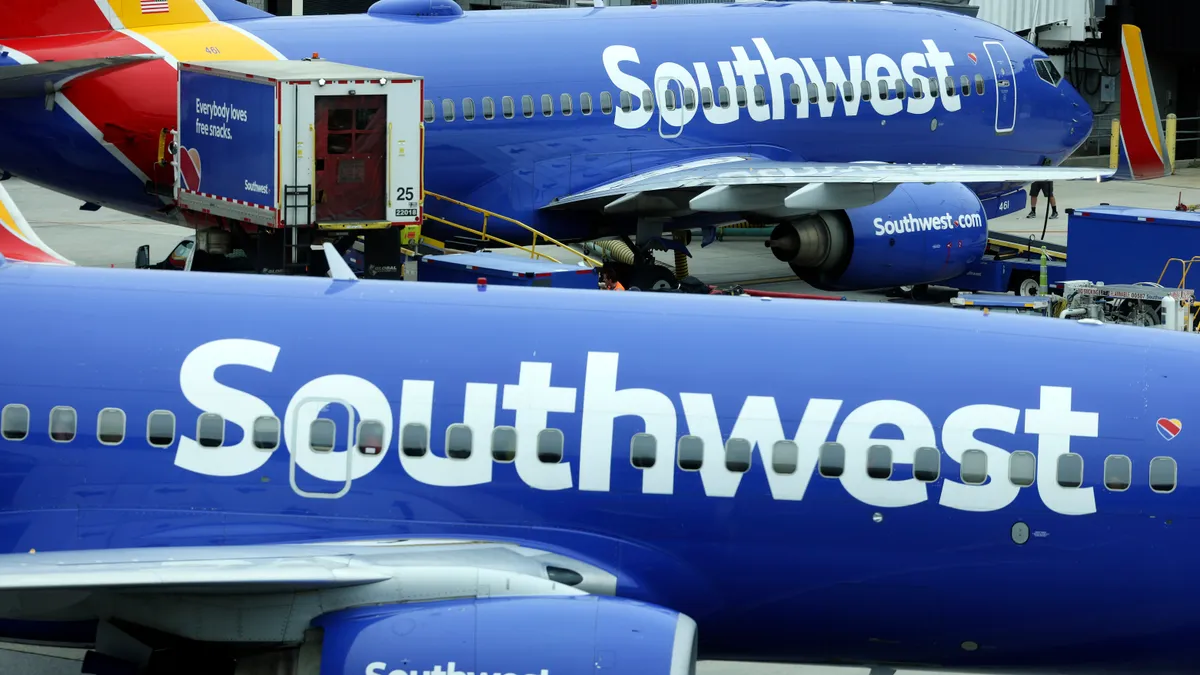The August 7 order by U.S. District Court Judge Brantley Starr requiring three Southwest Airlines lawyers to attend religious liberty training to purge the airline of a contempt judgment is unusual but not out of bounds, Michael Maslanka, a University of North Texas law professor, says.
Requiring the lawyers to take the training is “not that far removed from saying, ‘You don’t understand the substantive law here and therefore I’m going to make sure you do,’” Maslanka told Bloomberg Law. “It’s unusual but the inherent power to do so rests with the court.”
Starr ruled the airline acted with contempt when it willfully mischaracterized an order from last year to notify its flight attendants that it may not discriminate against their Title VII rights, which include a prohibition on discrimination against religious freedom.
Instead of acknowledging it can’t discriminate on those grounds, the notice effectively said the airline doesn’t discriminate against its employees’ for their religious practices and beliefs, what Starr called a willful “inversion” of the order.
Southwest has said it plans to appeal the ruling requiring its lawyers to attend the training.
Religious discrimination
In the order from last year, the judge said the airline had violated the civil rights of Charlene Carter, a flight attendant who was fired in 2017 for expressing her anti-abortion views on social media in violation of the airline’s policies. In that ruling, Starr sided with Carter that her civil rights trumped the airline’s policies.
The airline was directed to rehire her, pay her $800,000 in damages and to send its flight attendants the religious freedom notice.
After the company sent the notice, Carter accused the airline of contempt for deliberately misrepresenting its obligation, and Starr, in agreeing with her, ordered the in-house lawyers responsible for the deceptive notice to attend a minimum eight hours of religious rights training with an organization called Alliance Defending Freedom.
The lawyers subject to the training requirement are Kevin Minchey, a vice president overseeing labor issues, Kerrie Forbes, a litigation specialist, and Christopher Maberry, an employment specialist.
Christian advocacy
ADF, the training group specified in Starr’s ruling, has been involved in Christian legal advocacy efforts, including the U.S. Supreme Court’s Dobbs decision, which overturned the right to abortion precedent in Roe v. Wade, and the top court’s 303 Creative decision in June to allow a website designer on religious freedom grounds to refuse working on behalf of a gay couple, among other high-profile legal matters.
Starr’s decision to send the lawyers to a group like ADF isn’t much different than courts tapping left-leaning advocacy groups decades ago on behalf of civil rights causes, Scott Cummings, a UCLA School of Law legal ethics professor, told Bloomberg Law.
“Organizations engaged in diversity training 25 years ago would be organizations like the NAACP,” he said. “Now we have groups that are on both sides of the ideological faultline.”
The nonprofit Freedom From Religion Foundation decried the ruling as bizarre and called ADF a theocratic legal organization working to privilege certain kinds of Christianity and fuse state and church.
“The outfit is an anti-LGBTQ hate group, according to the Southern Poverty Law Center,” FFRF said.
Southwest hasn’t said on what grounds it will base its appeal. Starr is giving the lawyers until Aug. 28 to complete the training.











